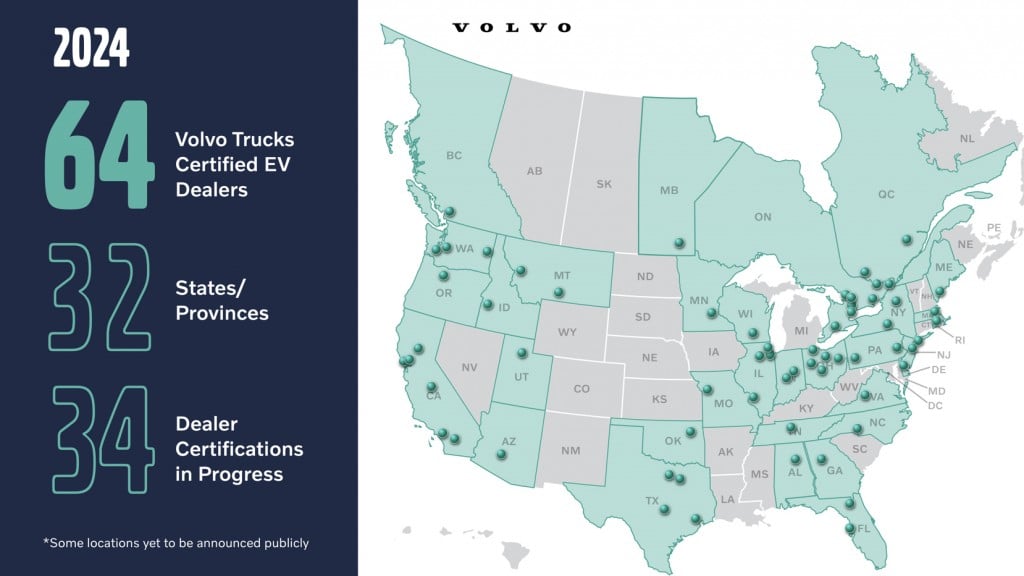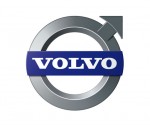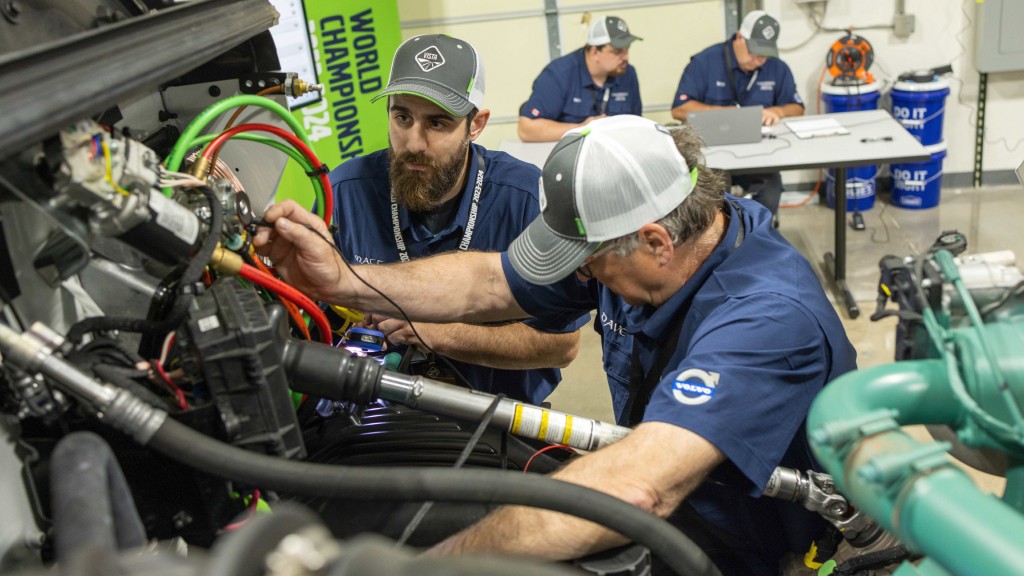Over 8.5 million zero-emissions miles logged by Volvo Class 8 battery-electric trucks in North America
The company’s electromobility network now includes more than 570 Volvo VNR electric trucks from 64 dealers across the U.S. and Canada

Since becoming available in 2020, more than 570 Volvo VNR Electric trucks have hit the road for operations all over North America. Volvo Trucks North America leads the market in deployment of Class 8 battery-electric trucks, according to the company, and collectively these trucks have logged over 8.5 million zero-emission miles. They are supported by a network of Volvo Trucks Certified Electric Vehicle (EV) Dealerships across North America, which continues to grow as the industry shifts to zero-tailpipe-emission solutions. Globally, Volvo has deployed more than 4,300 Volvo electric trucks in commercial operations in 48 countries.
Moving towards a comprehensive electromobility ecosystem
Volvo Trucks North America has been advancing toward a comprehensive electromobility ecosystem, with 64 dealer locations across 28 states and four Canadian provinces, with more dealers becoming certified every month. O'Connor Motor Company was just named as the first dealership in Maine to become a Volvo Trucks Certified EV Dealer after completing the in-depth training program requirements.
"We recognized early on that the transition to battery-electric vehicles required more than just the trucks themselves, that there had to be a total ecosystem of support on this ground-breaking technology," says Peter Voorhoeve, president of Volvo Trucks North America. "We take an extensive consultative approach with our customers and a major step of that was to be the first OEM to create a Certified EV Dealer network. Our dedicated effort to build a complete electromobility ecosystem continues to pay off, expanding across the United States and Canada. We remain committed to customers and their successful transition to zero-tailpipe-emission battery-electric trucks with the assurance that we are with them every step of the way."
The following dealer locations have recently completed their EV certification process:
- TEC Equipment - Dixon (Dixon, CA)
- Bruckner's Truck & Equipment (Dallas, TX)
- Tri-State Truck & Equipment (Billings, MT)
- O'Connor Motor Company (Portland, ME)
- Volvo Lac St-Jean (Saint-Prime, QC)
Several dealership groups have completed the Volvo Trucks Certified EV Dealer designation at multiple locations, including TEC Equipment, which recently completed the process for its seventh location across three states. Bruckner's Truck & Equipment has certified three locations across Texas and Oklahoma. Volvo Trucks is aiming to build a robust coast-to-coast dealer support network for battery-electric trucks, with 34 additional dealer locations across North America currently in the EV certification process.
The ecosystem includes route planning, cost analysis, and training programs
Beyond its certified dealer network, Volvo Trucks has established a comprehensive support system that includes digital tools for route planning and total cost of ownership analysis, strategic partnerships to enhance public and private charging infrastructure, and training programs to develop the next generation of truck technicians.
The Volvo on Demand program
Earlier this year Volvo Trucks and Volvo Financial Solutions (VFS) introduced the Volvo on Demand program, aimed at the "Truck-as-a-Service" business model. The program is for fleets that want to experience the Volvo VNR Electric truck in their operations before they make the up-front capital investment required for purchase or long-term leasing. Fleets can use a Volvo VNR Electric truck for as little as 12 months to experience the company's transportation solution ecosystem and learn how it may fit into their operations ahead of upcoming regulatory mandates and timelines.
VFS has also introduced new financing options for customers, extending beyond the truck itself, to cover the installation of charging infrastructure and combining service and maintenance plans into single monthly payments. This approach spreads out the initial investment costs and provides resources for a successful electromobility transition.



